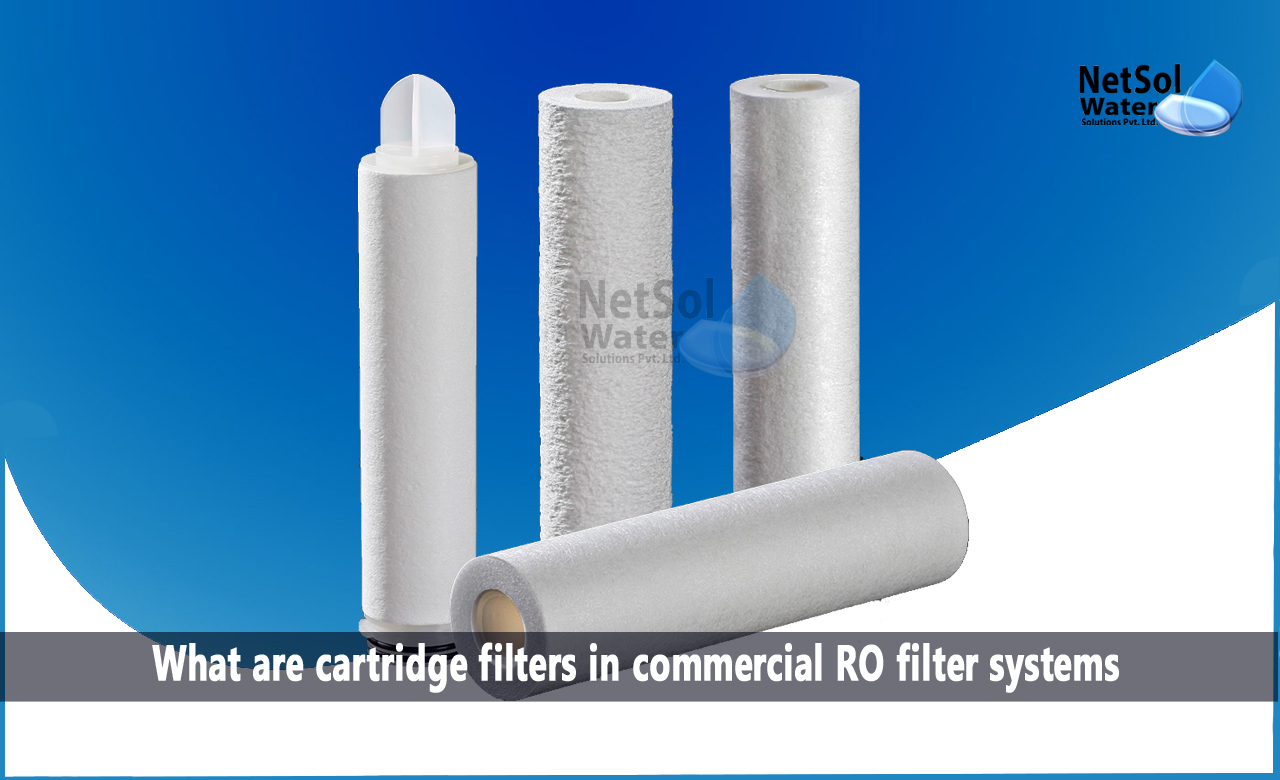Commercial Reverse Osmosis (RO) filter systems are designed to remove impurities and contaminants from water, making it safe and clean for consumption. These systems use various types of filters, including cartridge filters, to remove particles, sediments, and other impurities from the water before it enters the RO membrane.
In this blog post, we will discuss cartridge filters in commercial RO filter systems, their types, and how they work.
What are cartridge filters in commercial RO filter systems?
Cartridge filters are cylindrical filters made of various materials such as paper, ceramic, or polypropylene, and they are designed to trap sediment, particles, and other impurities from water. In commercial RO filter systems, cartridge filters are used as pre-filters to remove larger particles and impurities from the water before it passes through the RO membrane. Cartridge filters are essential in ensuring the effectiveness and longevity of the RO membrane.
Types of Cartridge Filters:
There are several types of cartridge filters that are commonly used in commercial RO filter systems, including:
-
Sediment Filters: Sediment filters are designed to remove larger particles such as sand, dirt, and rust from the water. These filters are typically made of polypropylene and are available in various micron ratings, which determine the size of particles that can be removed.
-
Carbon Filters: Carbon filters are designed to remove chlorine, organic compounds, and other impurities that can affect the taste and odor of the water. These filters are made of activated carbon and are available in various forms, including granular activated carbon (GAC) and carbon block filters.
-
Depth Filters: Depth filters are designed to remove fine particles and impurities from the water. These filters are made of a dense, fibrous material and are available in various micron ratings.
How Cartridge Filters Work?
Cartridge filters work by trapping sediment, particles, and other impurities from the water as it passes through the filter. As the water flows through the filter, it encounters the filter media, which traps the impurities. The clean water then passes through the filter and enters the RO membrane, where it undergoes further filtration to remove additional impurities and contaminants.
Maintaining Cartridge Filters:
Cartridge filters require regular maintenance to ensure they continue to operate effectively. Over time, the filter media can become clogged with impurities, reducing the filter's effectiveness and potentially damaging the RO membrane. To maintain the filter, it should be replaced periodically, depending on the water quality and usage. The frequency of filter replacement can vary from a few weeks to several months, depending on the type of filter and water quality.
Conclusion:
Cartridge filters are an essential component of commercial RO filter systems, as they help to remove larger particles and impurities from the water before it enters the RO membrane. There are several types of cartridge filters available, including sediment filters, carbon filters, and depth filters, each designed to remove specific types of impurities. Regular maintenance of cartridge filters is critical to ensure the filter system continues to operate effectively, and businesses should consider factors such as water quality and usage when determining the frequency of filter replacement. By incorporating cartridge filters into a commercial RO filter system and maintaining them properly, businesses can ensure they have a reliable and cost-effective solution for producing clean and safe water.
If you are curious to know more, feel free to contact us at +91-9650608473 or enquiry@netsolwater.com



